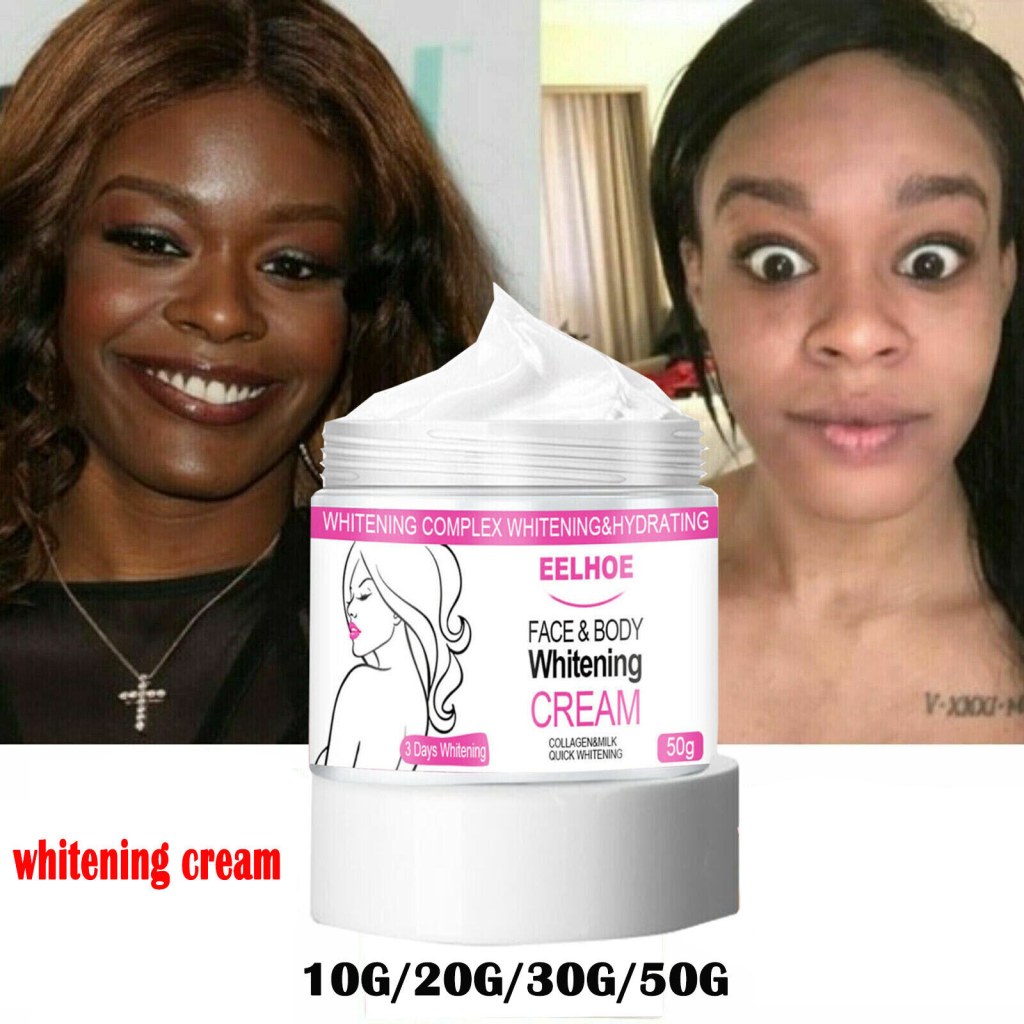Revitalizing Your Skin: Discover The Ultimate Skin Bleaching 2022 Solution!
Skin Bleaching 2022: A Comprehensive Guide to Achieving Brighter Skin
Introduction
Hello Readers,
2 Picture Gallery: Revitalizing Your Skin: Discover The Ultimate Skin Bleaching 2022 Solution!


Welcome to our comprehensive guide on skin bleaching in 2022. In this article, we will provide you with valuable information on the topic, including its benefits, risks, and frequently asked questions. Whether you are considering skin bleaching for cosmetic purposes or have concerns about its safety, this article aims to address all your queries. So, without further ado, let’s dive into the world of skin bleaching and explore what it has to offer.

Image Source: ebayimg.com
Before we begin, it’s important to note that skin bleaching is a personal choice, and it’s crucial to prioritize your skin’s health and safety above all. Always consult with a dermatologist or skincare professional before embarking on any skin bleaching journey.
Now, let’s explore the various aspects of skin bleaching and how it can help you achieve brighter and more even-toned skin.
Table of Contents
1. What is Skin Bleaching?
2. Who Can Benefit from Skin Bleaching?
3. When Should You Consider Skin Bleaching?
4. Where to Get Skin Bleaching Procedures?
5. Why Choose Skin Bleaching?
6. How Does Skin Bleaching Work?
7. Advantages and Disadvantages of Skin Bleaching
8. Frequently Asked Questions (FAQ)
9. Conclusion
10. Final Remarks
1. What is Skin Bleaching?

Image Source: ebayimg.com
Skin bleaching, also known as skin lightening or whitening, is a cosmetic procedure or treatment aimed at reducing the production of melanin in the skin. Melanin is responsible for the color of our skin, and higher levels of melanin can lead to uneven skin tone, dark spots, and hyperpigmentation. Skin bleaching involves the use of various products and techniques to lighten the skin and achieve a more uniform complexion.
The Process of Skin Bleaching
Skin bleaching can be achieved through the use of topical creams, lotions, or serums, which contain ingredients such as hydroquinone, kojic acid, or arbutin. These ingredients work by inhibiting the production of melanin in the skin cells, thereby reducing the appearance of dark spots and hyperpigmentation. In some cases, skin bleaching may also involve more invasive procedures such as chemical peels or laser treatments.
2. Who Can Benefit from Skin Bleaching?
Skin bleaching can benefit individuals who are looking to address specific skin concerns such as dark spots, melasma, acne scars, or hyperpigmentation. It can also be used as a cosmetic procedure to achieve a lighter and more even skin tone. However, it’s essential to remember that skin bleaching is a personal choice, and one should always prioritize their skin’s health and safety.
Consultation with a Dermatologist
Before considering skin bleaching, it is recommended to consult with a dermatologist or skincare professional. They can assess your skin type, discuss your concerns, and recommend the most suitable treatment options for you. A professional consultation will ensure that you make an informed decision and minimize the risks associated with skin bleaching.
3. When Should You Consider Skin Bleaching?
Skin bleaching may be considered when individuals have specific skin concerns that affect their self-confidence or quality of life. Some common reasons to consider skin bleaching include persistent hyperpigmentation, uneven skin tone, or the desire for a lighter complexion. However, it’s crucial to approach skin bleaching with realistic expectations and understand the potential risks involved.
Addressing Skin Concerns
Skin bleaching can help address various skin concerns, including dark spots caused by sun damage, hormonal changes, or aging. It can also be effective in reducing the appearance of melasma, a skin condition characterized by brown or gray patches on the face. However, it’s important to understand that individual results may vary, and consistent skincare routines are necessary to maintain the desired effects.
4. Where to Get Skin Bleaching Procedures?
Skin bleaching procedures can be performed by dermatologists, medical estheticians, or skincare professionals specializing in cosmetic treatments. It’s essential to choose a reputable and licensed provider who has experience in performing skin bleaching procedures. Research clinics or centers in your area, read reviews, and consult with professionals to ensure safety and effectiveness.
Home vs. Clinical Treatments
While there are numerous products available for at-home skin bleaching, it’s recommended to seek professional guidance for more effective and safer results. Clinical treatments supervised by professionals provide a higher level of expertise and can tailor the treatment to your specific needs, ensuring optimal outcomes and minimizing potential side effects.
5. Why Choose Skin Bleaching?
Skin bleaching can be chosen for various reasons, including aesthetic preferences, cultural influences, or addressing specific skin concerns. It offers individuals the opportunity to achieve a more even and radiant complexion, boost their self-confidence, and reduce the appearance of imperfections. However, it’s essential to approach skin bleaching with caution and prioritize skin health and safety.
Cultural and Societal Influences
Skin bleaching practices have been influenced by cultural and societal beauty standards, where lighter skin tones are often associated with attractiveness and success. However, it’s important to challenge these standards and embrace diversity in beauty. Skin bleaching should always be a personal choice made with careful consideration and respect for one’s natural skin tone.
6. How Does Skin Bleaching Work?
Skin bleaching works by reducing the production of melanin, the pigment responsible for the color of our skin. The active ingredients in skin bleaching products inhibit the enzyme tyrosinase, which is essential for melanin synthesis. By hindering this process, skin bleaching products help fade dark spots, even out skin tone, and achieve a lighter complexion.
Understanding Melanin Production
Melanin is produced by specialized cells called melanocytes present in the epidermis, the outermost layer of the skin. The amount and distribution of melanin determine an individual’s skin color. Skin bleaching products target these melanocytes to regulate the production and distribution of melanin, resulting in a more uniform complexion.
7. Advantages and Disadvantages of Skin Bleaching
Like any cosmetic procedure or treatment, skin bleaching has its advantages and disadvantages. It’s essential to consider these factors before deciding to undergo skin bleaching to ensure you make an informed choice. Let’s explore the pros and cons of skin bleaching:
Advantages of Skin Bleaching:
🌟 Brightens the skin and reduces the appearance of dark spots
🌟 Evens out skin tone for a more uniform complexion
🌟 Boosts self-confidence and improves self-esteem
🌟 Addresses specific skin concerns such as melasma or hyperpigmentation
🌟 Can be tailored to individual needs and preferences
Disadvantages of Skin Bleaching:
🌟 Potential risks and side effects, including skin irritation or sensitivity
🌟 Increased risk of sun damage and sensitivity to UV rays
🌟 May require long-term maintenance and consistent skincare routine
🌟 Results may vary among individuals
🌟 Potential psychological impact due to societal pressures and unrealistic beauty standards
8. Frequently Asked Questions (FAQ)
Q: Is skin bleaching safe?
A: Skin bleaching can be safe when performed under the guidance of a dermatologist or skincare professional. It’s essential to follow their recommendations and prioritize your skin’s health and safety.
Q: How long does it take to see results from skin bleaching?
A: The time required to see results may vary among individuals and depends on the chosen treatment method. It’s important to have realistic expectations and follow a consistent skincare routine for optimal results.
Q: Are there any potential side effects of skin bleaching?
A: Skin bleaching may cause side effects such as skin irritation, redness, or sensitivity. It’s important to discontinue use if any adverse reactions occur and consult with a healthcare professional.
Q: Can skin bleaching permanently lighten the skin?
A: Skin bleaching can lighten the skin temporarily but cannot permanently change an individual’s natural skin tone. Consistent use of skincare products and sun protection is necessary to maintain the desired effects.
Q: Are there any alternatives to skin bleaching?
A: Yes, there are alternatives to skin bleaching, including skincare products that target specific skin concerns, such as dark spots or hyperpigmentation. Consulting with a dermatologist can help determine the most suitable option for you.
9. Conclusion
In conclusion, skin bleaching can be an effective method to address specific skin concerns and achieve a brighter and more even complexion. However, it’s crucial to approach it with caution, prioritize your skin’s health and safety, and consult with professionals before undergoing any treatments. Remember, your natural skin tone is beautiful, and any decision regarding skin bleaching should be made based on personal preference and consideration of potential risks and benefits.
We hope this comprehensive guide has provided you with valuable insights into skin bleaching in 2022. If you have any further questions or concerns, we encourage you to consult with a skincare professional who can guide you on your skincare journey.
10. Final Remarks
Skin bleaching is a personal choice that should be made with careful consideration and respect for one’s natural skin tone. It’s essential to prioritize skin health and safety above all, and consult with professionals to ensure you make an informed decision. Embrace the beauty of diversity and remember that your natural skin tone is unique and beautiful. Love the skin you’re in and take care of it, always!
This post topic: Skin Care

